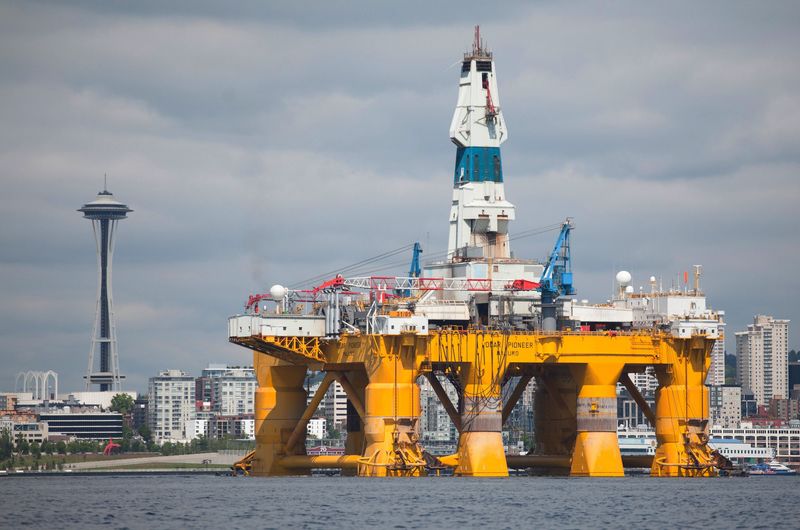This post was originally published on this site
https://i-invdn-com.akamaized.net/news/LYNXNPEB8R1A7_M.jpg © Reuters.
© Reuters.By Geoffrey Smith
Investing.com — Either the oil and gas sector is either on the verge of disaster, or a buying opportunity has opened up.
For obvious reasons, oil and gas-related stocks tend to track the price of , although the degree of correlation varies according to sector and to region. But the combination of coronavirus, trade wars, the OPEC-Russia alliance and Climate Change appear to have broken that link, at least in the short term.
The price for – which admittedly tends to be more volatile than aggregate share prices – has rebounded over 10% from its Feb. 10 bottom of $53.11 a barrel, but you really wouldn’t guess it from looking at the stock market.
Almost all of Europe’s majors – Royal Dutch Shell (LON:), BP (LON:), Total (PA:), ENI (MI:) and Repsol (MC:) – are trading below where they were on the day that troughed. Norway’s Equinor (OL:) is the sole exception, and even that is only 2.2% above its low.
Why, when the oil market is doing its best to ‘look through’ the short-term impact of Covid-19, is the stock market failing to do the same?
It can be argued that OPEC’s inability to agree deeper production cuts with Russia has hit western majors particularly hard, given that the resulting ‘lower-for-longer’ crude scenario turns profitable projects into marginal ones and requires higher risk premiums from equity investors.
The coronavirus has also hit some harder than others. Shell (LON:), for one, has suffered particularly badly from the disruption to the LNG market as Chinese buyers have invoked refused to take delivery of contracted cargoes, forcing the world’s most expensive gas to be dumped elsewhere in Asia at firesale prices.
Shell (LON:) is the world’s largest LNG supplier and also the worst-performing of the majors this year, down 15%. Of the other big LNG players, Total is down 9.6%, Repsol (MC:) 13% and Equinor 9.6%. Only BP (LON:) has escaped relatively lightly with a 2.7% drop.
But neither OPEC nor coronavirus can explain why Shell (LON:), Equinor, Eni and Total are all at or near their lowest in three-and-a-half years with no sign of a bounce in sight.
The explanation for that lies most likely in a long-term structural shift away from fossil fuel companies flagged last month by Blackrock’s Larry Fink in a letter that warned of a “fundamental reshaping of finance” to reflect concerns about Climate Change.
It’s no accident that low-carbon energy companies, which for years were also chained to oil prices because they were the marginal technology, have emphatically broken that link this year, at the same time as hydrocarbon giants have floundered.
Hydrocarbon producers may be due a bounce if crude prices can hold at their current level, which is still in the ball park of what they need to cover capex and dividends. The rich valuations of ‘greener’ stocks may even provide a nice arbitrage opportunity short-term. But Fink’s warning will still be valid when the last coronavirus patient has recovered,
Fusion Media or anyone involved with Fusion Media will not accept any liability for loss or damage as a result of reliance on the information including data, quotes, charts and buy/sell signals contained within this website. Please be fully informed regarding the risks and costs associated with trading the financial markets, it is one of the riskiest investment forms possible.

